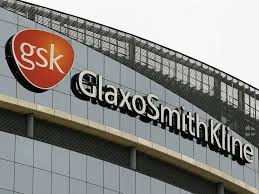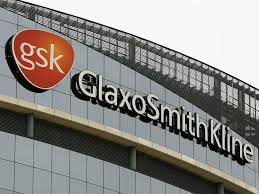
Britain’s competition authority has imposed a fine of £37.6m on GlaxoSmithKline for “illegal behavior” which resulted in higher costs for he NHS in relation to its antidepressant Seroxat.
In return for the generic drug makers delaying the launch of cheaper versions of the blockbuster paroxetine drug, branded Seroxat, which sold more than £90m in 2001, the pharmaceutical firm had paid generic drugmakers more than £50m between 2001 and 2004, the Competition and Markets Authority said.
“[Friday’s] decision sends out a strong message that we will tackle illegal behavior that is designed to stifle competition at the expense of customers – in this case, the NHS and, ultimately, taxpayers,” said Michael Grenfell, the CMA’s executive director for enforcement.
Arguing that its actions had saved the NHS money, GSK said it did not accept the CMA’s ruling. The group is considering an appeal.
The total penalties imposed for the entire episode touched £45m as the generic drugmakers involved - Generics UK Limited (GUK) and Alpharma, were also fined. Penalties of £1.5m were imposed on Alpharma and its parent Actavis and £5.8m was fined on GUK’s former parent Merck.
The “pay-for-delay” agreements “potentially deprived the NHS of the significant price falls that generally result from generic competition”, said the CMA. The average paroxetine prices dropped by more than 70% in two years since the generic copies came on to the market at the end of 2003, in this case.
GSK’s agreements with GUK and Alpharma broke the law on anti-competitive deals, the competition body found.
“GSK and the generics companies entered into these agreements at the time in order to settle costly, complex and uncertain patent disputes. The agreements allowed the generics companies to enter the market early with a paroxetine product and ultimately enabled a saving of over £15m to the NHS,” GSK however said. However GSK managed to avoid a lengthy court battle as it struck deals with the firms before litigation went to trial.
“This investigation shows our determination to take enforcement action against illegal anti-competitive practices in sectors big and small. Cracking down on these practices is essential to protect consumers, to encourage legitimate business activity that such practices stifle, and to stimulate innovation and growth,” Grenfell said.
“While pay-to-delay deals have been investigated in the US for some time now, the CMA’s decision is the first of its kind in the UK, and is likely to have a sobering effect on pharmaceutical companies that try to extend their monopoly in the UK via such deals. It sends a clear message that these business practices will not go unchecked by the competition authorities,” said Dr Farasat Bokhari, a senior lecturer in the School of Economics at the University of East Anglia.
(Source:www.theguardian.com)
In return for the generic drug makers delaying the launch of cheaper versions of the blockbuster paroxetine drug, branded Seroxat, which sold more than £90m in 2001, the pharmaceutical firm had paid generic drugmakers more than £50m between 2001 and 2004, the Competition and Markets Authority said.
“[Friday’s] decision sends out a strong message that we will tackle illegal behavior that is designed to stifle competition at the expense of customers – in this case, the NHS and, ultimately, taxpayers,” said Michael Grenfell, the CMA’s executive director for enforcement.
Arguing that its actions had saved the NHS money, GSK said it did not accept the CMA’s ruling. The group is considering an appeal.
The total penalties imposed for the entire episode touched £45m as the generic drugmakers involved - Generics UK Limited (GUK) and Alpharma, were also fined. Penalties of £1.5m were imposed on Alpharma and its parent Actavis and £5.8m was fined on GUK’s former parent Merck.
The “pay-for-delay” agreements “potentially deprived the NHS of the significant price falls that generally result from generic competition”, said the CMA. The average paroxetine prices dropped by more than 70% in two years since the generic copies came on to the market at the end of 2003, in this case.
GSK’s agreements with GUK and Alpharma broke the law on anti-competitive deals, the competition body found.
“GSK and the generics companies entered into these agreements at the time in order to settle costly, complex and uncertain patent disputes. The agreements allowed the generics companies to enter the market early with a paroxetine product and ultimately enabled a saving of over £15m to the NHS,” GSK however said. However GSK managed to avoid a lengthy court battle as it struck deals with the firms before litigation went to trial.
“This investigation shows our determination to take enforcement action against illegal anti-competitive practices in sectors big and small. Cracking down on these practices is essential to protect consumers, to encourage legitimate business activity that such practices stifle, and to stimulate innovation and growth,” Grenfell said.
“While pay-to-delay deals have been investigated in the US for some time now, the CMA’s decision is the first of its kind in the UK, and is likely to have a sobering effect on pharmaceutical companies that try to extend their monopoly in the UK via such deals. It sends a clear message that these business practices will not go unchecked by the competition authorities,” said Dr Farasat Bokhari, a senior lecturer in the School of Economics at the University of East Anglia.
(Source:www.theguardian.com)





